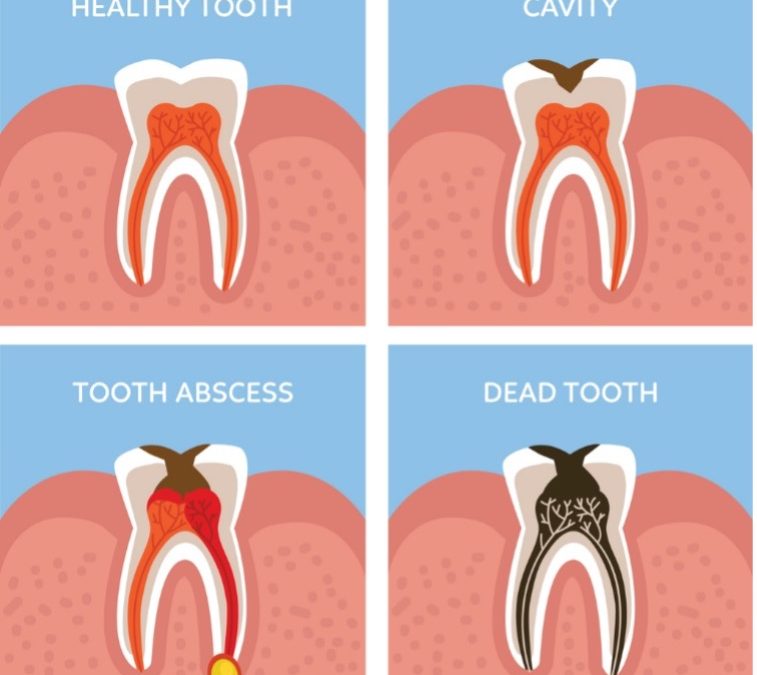The short answer is: maybe.
There is a common myth that you will experience excruciating pain when you need a root canal. The truth is that you need root canal treatment if the pulp of your tooth is damaged or infected, regardless of the pain.
Why are Root Canals Necessary?
A dentist can usually treat cavities with a routine filling when the decay is not too significant and has not entered the root of a tooth. However, root canals often become necessary when the cavity, filling or crack involves the pulp space.
The tooth’s core contains the dental pulp, which consists of nerves, blood vessels, and connective tissue. When they become irritated or infected, you may experience tooth pain. When this occurs, a root canal is required to remove the pulp. The root canal will prevent further infection and canals also fortify the tooth.
You might still need a root canal even if you do not feel any pain because not all infection results in pain. The purpose of a root canal is to handle any infection that has developed in your tooth pulp, not just stop you from feeling pain.
A root canal can save your infected tooth from having to be extracted.
When You Should Get a Root Canal
Luckily, this isn’t something that you have to figure out on your own. That’s what your dentist and endodontist are for.
Here are some common reasons of needing a root canal.
· Tooth Pain
Tooth pain is not the only indicator of needing a root canal, but it is common. If you are experiencing tooth pain, you should always go to your dentist for an exam.
· Sensitivity to Heat or Cold
Sensitivity to heat or cold may indicate that the blood vessels and nerves in your tooth are infected or damaged.
If your tooth hurts when you have something hot or cold and the pain lingers afterward, you might need a root canal.
· Swollen Gums
Swollen gums near a tooth can signify that you have a problem, which could mean the pulp inside your tooth may be infected.
You may also notice a small pimple on your gums, called a sinus tract, which can ooze pus if it’s punctured.
· Routine Exam
If your dentist sees bone loss at the end of your root, it could be due to an infected root.
Why You Should See an Endodontist
An endodontist specializes in treating the inside of the tooth. An endodontist completes a minimum of 2 additional years after dental school. They do advanced training in root canal treatment and dental surgery.
Often, you will be referred to an endodontist by your dentist when they are unable to treat your problem themselves.
Endodontists are specialists in performing root canals. Endodontics comes from the Greek words endo meaning “inside,” and odont, meaning “tooth”. Both Dr. Shen and I have advanced training in root canal treatment.
We work with state-of-the-art equipment such as the operating microscope and digital imaging that general dentists don’t have. We can treat you quickly and comfortably. To put it simply, we are experts at saving your natural teeth.
Summary
A root canal is a vital procedure for you to get if needed, and pain isn’t the only reason you may need one.
When you leave a diseased root canal untreated, your body has to constantly fight the infection that, if left untreated, will continue to worsen and can lead to more extensive damage.
Here at Modern Care Endodontics, we care about you and your teeth. Please contact us today to schedule a consultation.
Sincerely,
Dr. JD Simonton

